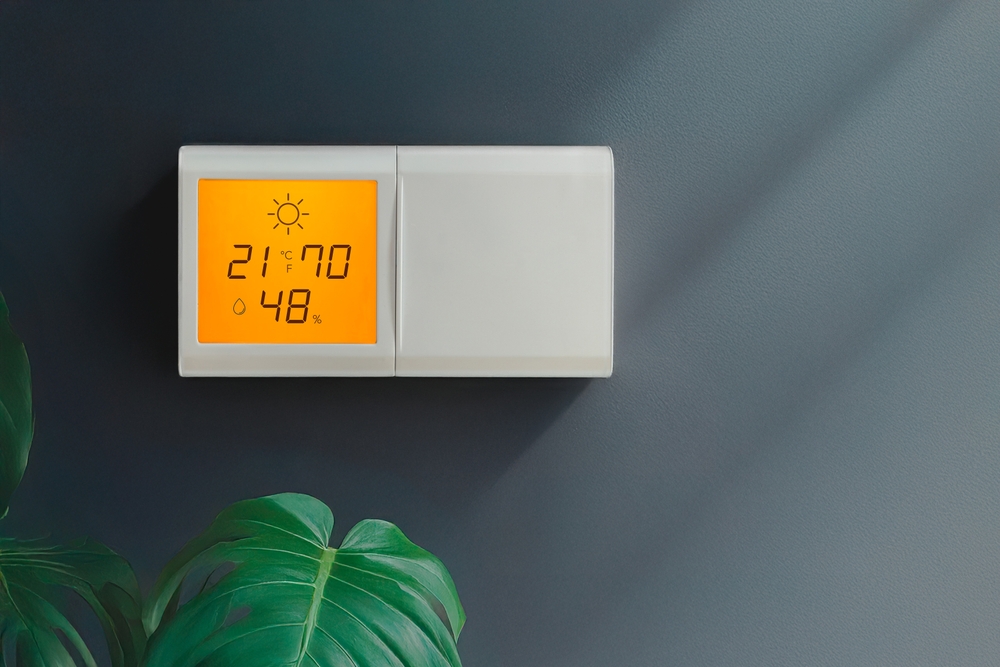Just like many other people, you probably tend to put off cleaning chores as much as possible. Bedrooms—especially a dirty bedroom—often get neglected because they’re not high-traffic areas. But what happens if this turns into a nasty habit and your bedroom hasn’t been cleaned in weeks? This can be a serious threat to the overall quality of your life, from your physical health to your mental well-being.
There are many dependable companies in Palm Beach Gardens offering quality cleaning services. So, when you don’t want to spend too much time tidying up your living space, you can hire professionals to do it for you. But with a good plan and a clear idea of how to start cleaning your room, it’s not difficult to do it yourself. Take a look at the possible outcomes of leaving your room unattended for far too long.
Signs Your Bedroom Is Too Dirty (Red Flags)
Visual Indicators vs Hidden Problems
These are the immediate, obvious indications of poor bedroom hygiene:
- Excessive Clutter: Clothes on the floor, overflowing laundry baskets, and stuff covering most surfaces (desks, nightstands, dressers) are huge red flags that make the room difficult to maneuver and clean.
- Visible Dust and Hair: Layers of dust on furniture, baseboards, ceiling fans, and bed frames, as well as large amounts of pet and human hair on carpets and upholstery, are all symptoms of neglect.
- Overflowing Garbage Cans: An unmanaged waste bin implies a lack of a consistent cleaning practice.
Smells, Stains, and Dust Layers
A persistent musty, stale, or generally “off” odor that does not go away with basic cleaning suggests an underlying hygiene problem, such as concealed mold or forgotten trash.
Smudges on mirrors and light switches, sticky residues on furniture, and noticeable stains on carpets or upholstery are all indicators of a messy atmosphere.
Allergic Reactions or Breathing Problems
Accumulated dust, pet dander, and other pollutants become trapped in carpets, upholstery, and air vents, circulating in the air and causing allergies and respiratory issues like asthma.
Dust mites thrive in filthy beds, mattresses, and carpets, feasting on dead skin cells. Their presence may cause persistent sneezing, itchy skin, and respiratory issues.
Mold can thrive in damp, poorly ventilated spaces (such as behind windows, corners, or under furniture). Inhaling mold spores can cause a variety of health problems, including skin irritation and severe respiratory infections.
What Causes a Bedroom to Become Dirty?
Dust, Skin Cells, and Everyday Debris
A dirty bedroom is the result of airborne particles settling, the normal shedding of human skin cells, ordinary things and routines, and animal activity.
Key causes include:
- Dust and Airborne Particles: Dust is the accumulation of microscopic particles such as outside pollutants, textile fibers, and dust mites. These particles are constantly floating in the air and eventually settle on surfaces such as furniture, floors, and bedding.
- Humans shed millions of skin cells and hairs every day. These organic molecules become part of the dust and build in fabrics, carpets, and beds, feeding dust mites.
- Everyday Debris: Dirt gets tracked in from the outdoors via shoes and clothing. Personal things, clutter, and even bedroom products (for example, makeup and lotions) all contribute to the buildup of items and debris.
- Pet Activity: Pets introduce hair, dander, and other allergies into the surroundings, increasing dirt accumulation.
Poor Ventilation and High Humidity
Poor ventilation and high humidity make a dirty bedroom by trapping moisture, which promotes mold, mildew, and dust mites, as well as enabling dust to adhere stubbornly to surfaces, resulting in stuffiness, allergies, and grime buildup on windows, walls (behind furniture), bedding, and carpeting.
Daily activities (breathing, sweating), leaks, and even indoor drying all contribute to an unpleasant, musty climate in which pollutants thrive, transforming a clean room into a dirty, allergen-laden area.
Clutter and Lack of Regular Maintenance
One cause of a dirty bedroom is the result of clutter accumulation (too many items, no system), procrastination, a lack of routines (“don’t put it down, put it away”), and is frequently caused by deeper issues such as overwhelm, depression, or ADHD, making simple tasks seem impossible, while a messy space can also worsen mental health in a vicious cycle.
What Happens If You Don’t Clean Your Bedroom?
When you don’t clean your room regularly, not only will it look bad, but it will also pose a threat to your health. If you’ve ever wondered what happens if you don’t clean your room, here are the most common things that might occur:
Clutter all around
Staying in cluttered, dirty rooms affects how your brain works. It can make you feel more stressed, disorganized, and cause you to lose focus easily. A cluttered space can also be a sign of depression. So, making an effort to tidy up can have multiple benefits, creating a clear contrast between a clean vs dirty room.
Dirty sheets
Tending to your bed sheets means washing them weekly or biweekly, depending on your situation. If you are sick or sleep without pajamas, your bedding will accumulate more hair, dirt, and skin oils. Stretching this to three or four weeks—or more—turns your bed into a harbor for dust mites, viruses, and bacteria. This is one reason you may ask why is it so hard to clean my room once things get out of control.
Contaminated air
Apart from soiled sheets, the air in a neglected bedroom can also become contaminated with dust. This buildup circulates in the air and can even clog your vent ducts, triggering allergies and respiratory issues. Living in a dirty bedroom can mean breathing in unhealthy air every night.
Dust mites
These tiny bugs live in carpets, curtains, furniture, stuffed animals, and bedding. If left unchecked, they can cause sneezing, watery eyes, coughing, and congestion. Ignoring them in your dirty rooms can lead to serious conditions like asthma.
Food and bugs
If you have the habit of eating in your bedroom, failing to clean will leave food crumbs around the area, eventually attracting bugs. Apart from being a nasty sight, if not resolved, not cleaning regularly turns your dirty bedroom into a perfect home for pests that thrive on leftover food..
Disease spread
As the final stage of neglect, all that clutter, dust, and dirt can attract mice and other critters. These rodents can carry up to 25 different diseases, some potentially fatal—another reason to keep a clean vs dirty room comparison in mind when deciding whether to tidy up.
The Hidden Dangers of a Dirty Bedroom
A dirty bedroom can harbor hidden health hazards, primarily related to the proliferation of dust mites and mold. Dampness and lack of cleanliness provide the ideal environment for these microorganisms to thrive. Excessive dirt, dust, and moisture can lead to respiratory problems, skin infections, and even affect mental well-being.
Dust, Allergens, and Health Problems
Excessive filth and mess in a dirty bedroom can exacerbate respiratory ailments. Dust mites, mold, and other allergens thrive in a cluttered atmosphere, making breathing difficult for asthmatics and allergy sufferers. In severe situations, exposure to these triggers might cause an asthma attack or the emergence of an allergy.
Can a Dirty Room Make You Sick?
A dirty bedroom can definitely make you sick. Such an environment can harbor various pathogens, including bacteria, viruses, and fungi, which may lead to a range of illnesses. Additionally, dust, mold, and allergens found in a dirty room can trigger or worsen respiratory issues, allergies, and skin conditions. The risk of illness increases significantly, especially for individuals with allergies, asthma, or weakened immune systems.
How to Start Cleaning Your Room (Step-by-Step)
To properly begin cleaning your room, declutter first, then dust surfaces, clean windows and mirrors, and finally tackle the flooring. Remember to make your bed and put away any clothing.
Here’s a more extensive, step-by-step guide:
- Declutter: Remove any unnecessary objects. Put away everything that does not belong in the room, such as dishes, books, or miscellaneous objects. Clean clothes should be folded or hung up while filthy items should be placed in a hamper. Remove all rubbish, including wrappers, papers, and other disposable items.
- Dusting: Begin from the top. Dust ceiling fans, light fixtures, and tall shelves.
- Work your way down. Dust the furniture, picture frames, and other surfaces.
- Cleaning Windows and Mirrors: Clean the windows and mirrors using a glass cleaner. Clean all surfaces, including tables, dressers, and shelves. Remove dust and filth from the floors by vacuuming, mopping, or sweeping them.
- Finishing Touches: Make your bed. A made bed immediately makes a room appear cleaner. Store stuff in drawers, cabinets, and closets.
Try to make it fun by putting on some music or listening to a podcast while you clean. You can set a timer using the 20/10 rule (20 minutes of cleaning followed by a 10-minute break) to stay focused. When you’re done, reward yourself for cleaning your dirty bedroom: Give yourself a treat after completing a cleaning task.
How a Dirty Bedroom Affects Your Sleep Quality
Stress, Anxiety, and Clutter Overload
A cluttered and dirty bedroom increases stress and negatively impacts health by disrupting deep sleep. This chaotic environment overloads the brain, raises cortisol levels, and hinders relaxation, leading to restless nights and poorer sleep quality.
Visual clutter elevates cortisol, keeping the body alert and making it difficult to unwind. It can also reflect underlying depression or anxiety, creating a negative cycle that further disrupts sleep. A cluttered space generates constant stress, preventing the restorative phases of sleep and making it harder for the brain to shut down.
The bedroom should be a calming sanctuary, but clutter turns it into a space that promotes activity and stress instead of relaxation.
Odors and Poor Air Quality Affecting Rest
A dirty bedroom, with odors and poor air quality, damages sleep by accumulating allergens (dust, mites, mold) that cause allergies, congestion and respiratory problems (asthma, cough), interrupting the deep phases of rest, increasing fatigue and affecting concentration, because the air loaded with CO₂, particles and Volatile Organic Compounds (VOCs) irritate the respiratory tract and alter the body’s natural cycle, causing discomfort and non-restorative sleep.
Why Is It So Hard to Clean Your Room?
Cleaning your room can be challenging for a variety of reasons, including an abundance of clutter, a lack of structure, and trouble initiating or focusing on tasks. Procrastination and avoidance can be exacerbated by overwhelming clutter, a lack of designated placements for goods, and mental barriers caused by despair or stress.
Clean vs Dirty Room: What’s the Real Difference?
A “clean room” in the context of living spaces refers to an environment that is free from dust, clutter, and other contaminants. In contrast, a “dirty room” is the opposite, potentially harboring harmful bacteria, odors, and allergens. Beyond the physical state, clean rooms promote a sense of calm and organization, while dirty rooms can contribute to stress and anxiety.
Characteristics of a Clean Room:
Controlled Environment: Clean rooms in industrial settings are meticulously controlled environments with specific temperature, humidity, and air filtration systems designed to minimize the presence of particles.
Organized and Tidy: A clean room at home is typically free of clutter, with items stored neatly and surfaces kept clear.
Reduced Health Risks: Clean spaces can lower the risk of respiratory issues, allergies, and infections by minimizing exposure to harmful microorganisms.
Improved Mental State: Cleanliness can foster feelings of calm, reduce stress, and enhance productivity.
Characteristics of a Dirty Room:
Contamination and Health Hazards: A dirty bedroom can become breeding grounds for bacteria, mold, and pests, potentially causing illness or allergies.
Disorganization and Clutter: A dirty room is often messy and cluttered, making it difficult to find items and navigate the space.
Negative Psychological Impact: Dirty bedroom can lead to increased stress, anxiety, and feelings of being overwhelmed.
Don’t Let a Messy Bedroom Affect Your Health and Well-Being
A Clean Bedroom Supports a Healthy Mind and Body
Your bedroom should be a sanctuary, not a source of stress or sickness. From dust mites to allergens, the risks of a dirty bedroom are real—and so are the benefits of keeping it tidy.
When to Call a Professional Cleaner
If you worry about cleaning your home properly or about the right way to tend to your bedroom, you should call Yorleny’s Cleaning Service! We are a company with long experience in the cleaning business, providing quality service tailored to our clients’ needs. With our help, you will have a clean home and enough time for activities with your family, such as visiting the beautiful Grassy Waters Preserve. Book today!
Get Expert Help from Yorleny’s Cleaning Services
Don’t wait until your dirty bedroom starts impacting your health. Contact Yorleny’s Cleaning Services today for a deep, restorative clean tailored to your needs.
Frequently Asked Questions – What Happens If You Don’t Clean Your Room?
Can a dirty bedroom make you sick?
Yes. Dust, mold, and allergens can trigger respiratory problems, worsen allergies, and even affect your sleep quality.
What’s the fastest way to start cleaning your room?
Start with visible clutter, then move to surfaces and finally vacuum or mop the floors. This quick-win approach builds motivation to clean your dirty bedroom as you go.
How does a clean vs dirty room impact daily life?
A clean room promotes better sleep, reduces stress, and improves air quality, while a dirty bedroom can lead to anxiety, poor rest, and potential health issues.
What should I do if I can’t keep my room clean?
Consider scheduling regular professional cleanings with Yorleny’s Cleaning Services to maintain a fresh and healthy space year-round.
How do bedrooms get so dirty?
Bedrooms accumulate dirt from natural particle shedding (like skin and hair), outside elements (such as pollen and dust from open windows), and textiles (like bedding and carpets) that trap grime. Clutter, poor airflow, and inconsistent cleaning also contribute to the buildup of dust and allergens characteristics of a dirty bedroom.
How often should you clean your bedroom?
Aim for a thorough clean once a week, including changing sheets, dusting, and vacuuming. Supplement this with daily tidying, like making the bed and picking up clutter, to maintain a healthier sleep environment. While individual needs may vary based on lifestyle (e.g., pets or allergies), a mix of weekly deep cleans and daily maintenance is ideal.
Recent Articles

Super Bowl Cleaning Checklist: How to Prepare and Clean Your Home Before and After the Game
Super Bowl LX is almost here, and families in West Palm Beach are preparing to welcome friends and family for the biggest…

How to Check Humidity in Your Home: Simple Methods for Florida Households
Have you ever wondered how to check humidity in home? The truth is, nobody likes living in a damp house, especially in…

Superbowl After Party Cleaning: How to Clean Your Home Before and After the Big Game this 2026
The Super Bowl is just around the corner, and Superbowl after party cleaning becomes essential when hosting a viewing party at home.…
An overview of the areas we serve
See below to check if our top-quality house cleaning services are available in your city and book your first appointment with just a few clicks.
